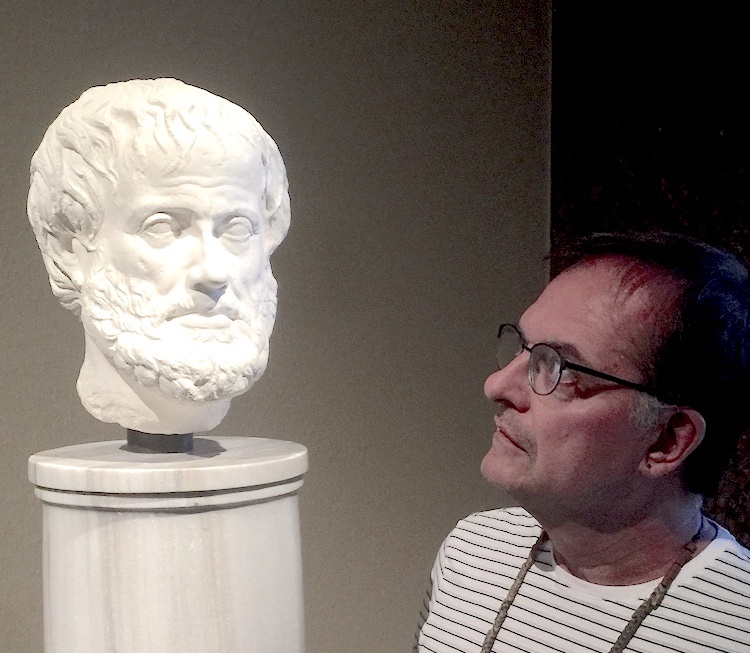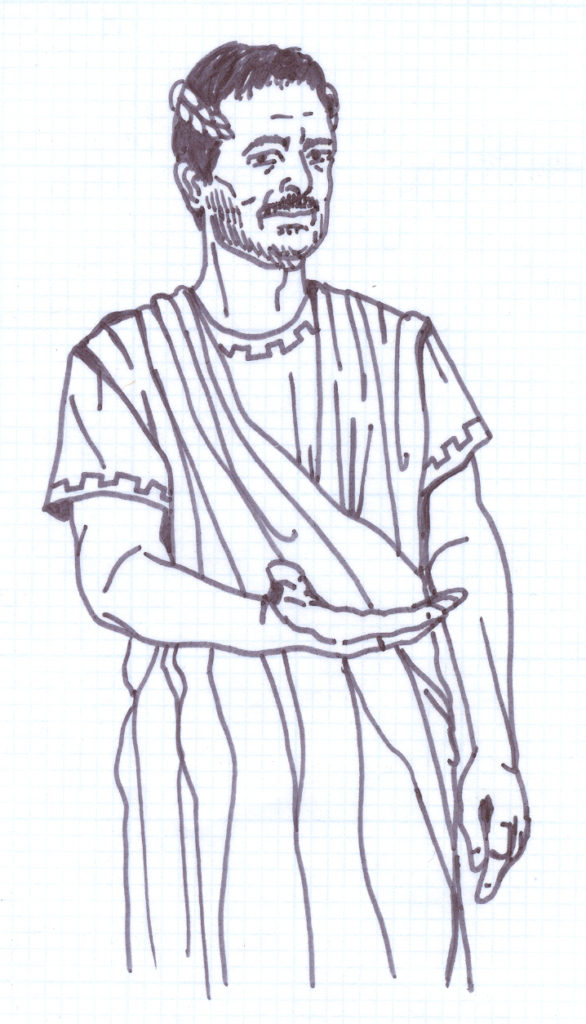Hello, I’m Matthew. Welcome to Live Your Virtue.
I’m a philosopher, and, crazy as it may sound, I have a private practice in philosophy to help people live better, more aware, richer lives. In the last few years, it seems, more people are living their anxieties, living their fears. It’s understandable. The world is full of fearful things. But living our fears is not living our best.
That’s why I founded Live Your Virtue.
Take a look at yourself. What’s your best? Are you courageous? Generous? Wise? Are you persistent, or loyal, or tolerant? When you’re afraid or things look alien and threatening, do you live your fear, or do you live your excellence?

As I said, I’m a philosopher, but I’m not a “joiner.” If you asked me which of “The Greats” I most admire, I almost always start with qualifications, like, “Taking account of the time he lived. . . .” or “Given the current state of human knowledge.” But I’m going to confess that the philosopher I most admire is Aristotle — and I’m not even going to apologize. If you’ll give me a few more moments, I’d like to explain why.
Aristotle argued that our lives — your life and mine — are most meaningful and grounded when we strive for the excellence of our natural gifts and share our striving and the results in a community. Think this over: When we cultivate our gifts, striving for excellence, our lives are focused on getting better, and so our lives become richer and more grounded. Richer, because, well, who doesn’t like being really good at something? But more grounded because of the habits and self-control it takes to get really good at anything.
You know what they say about mastery: Any reasonably complex skill takes thousands of hours to master. But what if you lived in a state of striving toward mastery — “excellencifying,” in other words? What if you started thinking about living as a skill, one of the excellences worth striving for?
Now, no one of us can achieve excellence in every skill that’s worth doing. That’s because flesh-and-blood creatures are finite, but when it comes to worthwhile skills, the possibilities are almost innumerable. You simply won’t have time.
How then, can we maximize the richness of our lives? How can we get more excellences than any one of us can create alone? When you think about it, it’s pretty obvious: We can share our excellences with each other. I’m pretty good at philosophy, and I’ve spent a lot of time striving to get better and better at it. But maybe you are a poet, or a painter — or a welder, or a clothing designer, or a baker. I lack those gifts, but I admire the results very much. That’s where you enter my life: By pursuing your gifts, striving for excellence, and sharing, you actually make my life richer and more fulfilling than it could possibly be if I just go it alone.
And here’s the really important thing: If I want the richest possible life, as full as possible of excellence, what attitude should I adopt toward you?
Let’s think about that. To make my life as rich and full as possible, the most effective thing I can do is encourage you to pursue your excellences. Not just enjoy the products of what you do well, but actually contribute to your ability to strive for your excellences.
This interest in including excellence in our own lives is exactly what binds us together in one community, according to Aristotle. I cannot get closer to the best possible human life for myself unless you can too, and the most basic way I can improve my own chance of having a good life is to encourage you in living your best. And you, and you, and you. See?

Now, here’s the really interesting thing — at least for a philosopher like me. The Greek word Aristotle used for excellence is aretē, and the traditional translation is — wait for it — virtue. But I disagree with this translation, and I’m not alone. Aristotle, for instance, would not have endorsed the notion of virtue that we live with today. Think about virtue: What comes to mind? Most people think of virtue as a private thing, an “inner attitude” or set of “personal beliefs” that become visible, if at all, in “good behavior.”
But that approach to virtue means that its origin is private and individual, and so there’s no necessary drive to community (or excellence!). In the modern sense, I can live in a cave as a hermit with my beliefs and have a “virtuous life.” How close are we to that kind of life today?
Aristotle specifically says that’s not what he means. The only way to have the best kind of human life, a life of “well-being,” is to live in a community with others who encourage and support you. But how weird is that really? People (re)discover the wisdom of this every time we have a disaster, because in those difficult moments, people who otherwise wouldn’t speak to each other are kind and generous and supportive. “How nice,” we think, and we add some proverb, like “It takes a village,” or something — and then, when something else grabs our interest, we withdraw into our private little goodnesses.
That brings us back to Live Your Virtue. Yes, you could say it’s yet another t-shirt, or logo, or bumper sticker. But really, it’s a change in yourself, which means a change in your community and the world. That’s my goal: Help me turn the world into a community of individual excellence seekers, bound together by mutual interest in each other’s excellences.